I cannot access values in Flex Object (ArrayCollection) after I receive it from Zend AMF. The original type sent is PHP associative array which is simply returned like
return $this->sections['initial_setup'];
PHP Variable view:

The required result sent looks like this in Charles AMF RPC tab:

But when I receive the data in Flex as Object (or String[] - it doesn't matter), I cannot access the property values in such code
var result:Object = event.result;
if (result['database'] == 'yes' && result['admin'] == 'yes')
// continue branch ...
and I get exception on the if-line:
Error: Unknown Property: 'database'.
at mx.collections::ListCollectionView ...
Finally, I can see in Eclipse variables view that ResultEvent instance carries a result of type ArrayCollection with 0 length and the values received are visible with D icon (I couldn't find what D adornment means):

But why I still can't access them at all and what should I do to use them?
I have tried to change types of Array or ArrayCollection instead of Object. Also there is a thread discussing similar problem, but after trying that out, it doesn't help too.
Any help will be much appreciated :o)
EDIT 1: Here is the code of FB generated super class constructor for the ConfigurationService:
// Constructor
public function _Super_ConfigurationService()
{
// initialize service control
_serviceControl = new mx.rpc.remoting.RemoteObject();
// initialize RemoteClass alias for all entities returned by functions of this service
var operations:Object = new Object();
var operation:mx.rpc.remoting.Operation;
operation = new mx.rpc.remoting.Operation(null, "readSettings");
operation.resultType = Object;
operations["readSettings"] = operation;
operation = new mx.rpc.remoting.Operation(null, "writeSettings");
operations["writeSettings"] = operation;
operation = new mx.rpc.remoting.Operation(null, "readDBSettings");
operation.resultType = valueObjects.ConnectionParams;
operations["readDBSettings"] = operation;
operation = new mx.rpc.remoting.Operation(null, "writeDBSettings");
operations["writeDBSettings"] = operation;
operation = new mx.rpc.remoting.Operation(null, "readInitSetupCompletion");
operation.resultType = Object;
operations["readInitSetupCompletion"] = operation;
operation = new mx.rpc.remoting.Operation(null, "writeInitSetupCompletion");
operations["writeInitSetupCompletion"] = operation;
_serviceControl.operations = operations;
_serviceControl.convertResultHandler = com.adobe.serializers.utility.TypeUtility.convertResultHandler;
_serviceControl.source = "ConfigurationService";
_serviceControl.endpoint = "gateway.php";
preInitializeService();
model_internal::initialize();
}